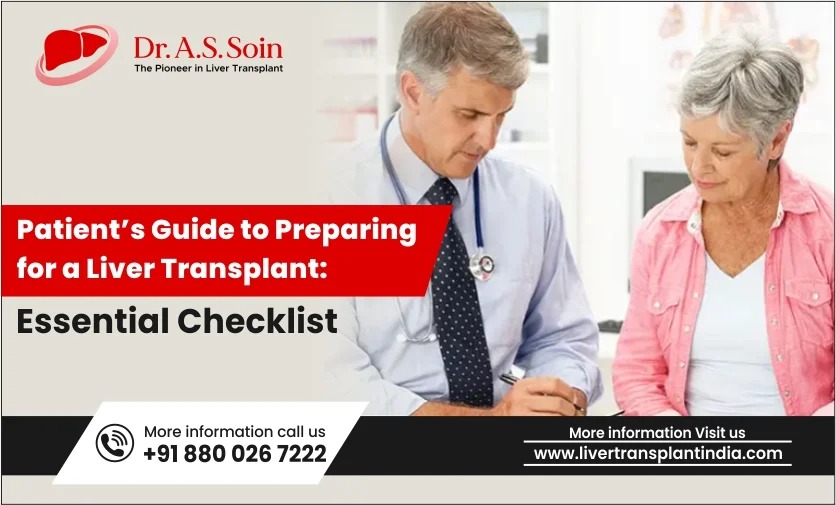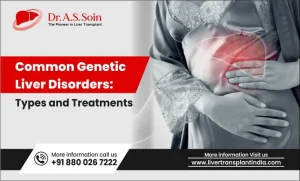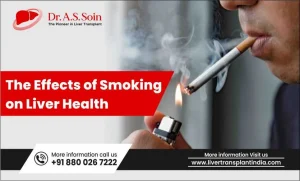Liver transplants are life-saving procedures for individuals suffering from severe liver diseases, such as liver cancer, cirrhosis, and acute liver failure. These complex operations offer patients with severely impaired liver function a chance at improved health and extended life. However, the preparation leading up to the surgery significantly impacts its outcome. Proper preparation ensures that patients are ready for the demands of surgery and the subsequent recovery period.
This comprehensive guide provides a crucial checklist for patients and their families, covering medical evaluations and lifestyle modifications. By following these recommendations, patients can increase their chances of a successful liver transplant and a swift recovery.
Table of Contents
ToggleUnderstanding Liver Transplantation
A liver transplant involves replacing a damaged liver with a healthy one from a donor. This procedure is recommended for patients with acute liver failure, liver cancer, or end-stage liver disease. There are two main types of liver transplants: those from deceased donors and those from living donors.
In a living donor transplant, a portion of a healthy liver from a living person, often a relative or close friend, is transplanted into the recipient. The donor’s liver regenerates to its original size over time. In deceased donor transplants, the entire liver is taken from someone who has died and consented to organ donation.
The process involves several key milestones from diagnosis to surgery. Patients must undergo a thorough medical evaluation, including imaging scans, blood tests, and specialist consultations, to determine their eligibility for a transplant. Eligible patients may start looking for a living donor or be placed on a waiting list for a deceased donor liver. Continuous medical care and monitoring are essential during this period to manage liver disease and maintain overall health in preparation for the transplant.
Pre-Transplant Assessment
Complete Medical Evaluation
A comprehensive medical evaluation ensures the patient is suitable for a liver transplant. This includes numerous blood tests, imaging investigations such as ultrasounds, CT scans, MRIs, and other diagnostic procedures to assess liver function and general health. Evaluating other critical organs, such as the heart and lungs, helps avoid complications during the transplant. This thorough assessment aids the transplant team in determining the urgency of the transplant and creating a personalized treatment plan.
Psychological Assessment
Assessing the patient’s psychological readiness is crucial for managing the stress of surgery and recovery. Psychologists and psychiatrists evaluate patients’ coping strategies, support networks, psychological history, and current state of health. This ensures patients have a realistic understanding of the transplant process, potential side effects, and necessary post-operative lifestyle changes. A strong support system and mental well-being are vital for long-term health and successful post-transplant recovery.
Financial and Insurance Aspects
Liver transplants are expensive, and patients need to be aware of the financial implications, including surgery costs, hospitalization, medications, follow-up care, and potential complications. Transplant coordinators assist in determining out-of-pocket expenses, reviewing insurance coverage, and exploring financial aid options. Understanding these financial aspects ensures patients can afford necessary post-transplant care and medications, reducing financial stress and promoting recovery.
Significance of Adhering to Pre-Surgery Instructions
Following pre-surgery instructions is critical for a successful liver transplant. These often include lifestyle changes, medication adherence, and attending scheduled checkups. Adhering to these recommendations maximizes recovery chances and demonstrates the patient’s commitment to the transplant process, essential for long-term success and post-transplant health.
Medical Preparations Before Transplant
Required Medical Examinations and Procedures
Patients undergo extensive diagnostic tests, such as blood tests, CT or MRI scans, and sometimes a liver biopsy, to evaluate liver function, detect infections, and confirm overall health suitability for surgery.
Vaccinations and Immunizations
To reduce the risk of post-surgery infections, patients must be up-to-date on their immunizations, including pneumococcal, influenza, and hepatitis A and B vaccines.
Handling Pre-existing Medical Issues
Any pre-existing medical conditions, such as diabetes or hypertension, must be managed properly before the transplant. This may require medication adjustments and careful monitoring by doctors.
Instructions and Pre-Surgery Medications
Patients receive specific pre-surgery medications to prepare their bodies for the transplant and detailed instructions regarding diet, hydration, and activity levels in the days leading up to surgery.
Lifestyle Modifications Before Liver Transplants
Diet
Patients should maintain a well-balanced diet, including whole grains, fruits, vegetables, and lean proteins, while avoiding processed foods, excessive salt, and unhealthy fats to optimize liver and overall health.
Exercise
Regular exercise builds strength and endurance, crucial for transplant recovery. Patients should engage in mild to moderate physical activities, such as walking or swimming, as recommended by their healthcare provider.
Avoiding Alcohol and Smoking
Alcohol and smoking negatively impact liver function and transplant success. Patients are strongly advised to quit both to improve transplant and recovery outcomes.
Stress Management
Effective stress management is vital for overall health before and after transplantation. Patients can practice mindfulness, meditation, yoga, or seek counseling to handle the emotional stress of undergoing a transplant.
Make a Comprehensive Checklist
Assembling Medical Records and Data
Compile all relevant medical records, including imaging scans, test results, and doctor’s notes. Prepare a detailed medical history and list of current medications and allergies. Keep these records organized and accessible for pre-surgery consultations and hospital admissions.
Essential Hospital Packing Items
Pack comfortable clothing, personal hygiene items, and necessary medical equipment. Include your ID, insurance card, and any prescribed medications. Consider bringing electronic devices, magazines, or books for entertainment during the hospital stay.
Important Phone Numbers and Emergency Contacts
Create a list of emergency contacts, including friends, family, and medical professionals. Include the phone numbers of your primary care physician, transplant coordinator, and any specialists involved in your care. Having this information readily available ensures quick assistance when needed.
Financial and Legal Planning
Organize insurance details, understand your policy, and make any necessary pre-payments. Legal preparations, such as establishing a power of attorney and updating your will, are also prudent. This ensures your wishes are honored during the transplant process.
Comprehensive Support for Your Liver Transplant Journey at Liver Transplant India
Under the guidance of Dr. A.S. Soin and his experienced team at Liver Transplant India, we provide comprehensive support throughout the liver transplant process. From detailed medical evaluations and psychological assessments to financial and insurance counseling, we ensure you are well-prepared. We prioritize your physical preparation with personalized pre-surgery routines, tailored medical evaluations, and necessary vaccinations.
We assist with organizing important documents, hospital packing, and preparing emergency contacts, ensuring you feel supported and ready at all times. At Liver Transplant India, we are dedicated to enhancing your quality of life and guiding you through every step of your journey to better health and vitality.
Conclusion
Thorough preparation is crucial for a successful liver transplant. Following this checklist, covering all medical, logistical, and personal aspects, greatly enhances the chances of a smooth and successful transplant experience. Organizing your documents, packing essential items, managing finances, and staying connected with your healthcare team will help you navigate this challenging journey with confidence. Remember, a well-prepared patient is better equipped to overcome the challenges of transplantation, paving the way for improved health and a renewed lease on life.








